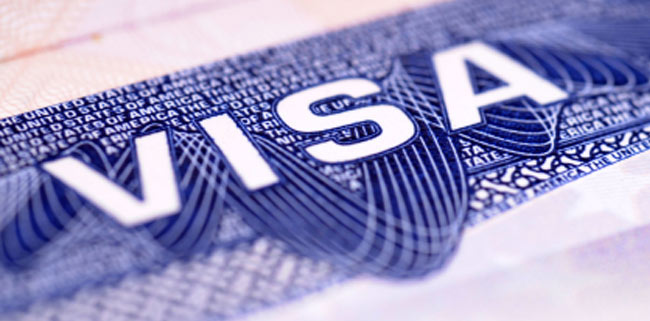

We have put together the most common student visa questions so you can quickly find out key student visa information. Make your student visa application quick and easy and give yourself the best chance of a successful student visa application for your chosen country.
1. Where do I start?
2. Where do I apply for my student visa?
3. What type of student visa do I need?
4. How much money will I need?
5. How good must my English be?
6. Can my family travel with me?
7. Can I work on my visa?
8. How long can I stay?
9. Are Governments trying to make it harder for international students?
10. Where can I find more information?
You can’t apply for a student visa until you’re accepted to a course in that country. So, if you haven’t already done so, you need to submit an application for the course you wish to study. Not only that, but you must ensure the course meets the country’s visa requirements. Your student visa acceptance will be determined by a number of factors:
Different countries have differing visa systems and acceptance procedures. However, they are usually very similar:
Wherever you chose to study we advise that you apply for your visa as soon as possible.
Usually you will apply for your student visa in your own country. This will require you to visit an application center or make your application online. Here you will submit your application paperwork and provide any biometric information required.
Here is where you apply for a student visa to the following countries as examples:
If you are studying abroad for your post-16 education you will require a general student visa.
This is one of the most common questions and is an important factor in your visa application process. It is necessary for you to prove that you have enough funds for your course fees and living costs. However, the money required can vary depending on the country and region within that country. Some countries require you to prove that you have funds for the entirety of your course. While others only require proof of funds for the 1st year.
For a UK student visa you will need to prove you have funds for the following:
For an Australian student visa:
For a US student visa:
The course you have applied for may require you to have completed an English language certificate. In addition to that, tighter immigration rules mean you must prove you have a good understanding of English at the border crossing.
New changes to the UK student visa mean that if you are unable to communicate without a translator you will be denied entry.
Your family can travel with you if you meet each country’s visa requirements. For the UK you must be on a postgraduate course at a university with at least a 12 month duration. Or a Government sponsored student.
For the US you will have to prove your relationship to your dependent. They will also have to apply for their own visas.
For the Australian student visa you will have to prove that you have a sufficient level of funds available to support each dependent.
We advise that you check the specific requirements for your chosen destination.
Generally on a student visa you are permitted to work up to 20 hours per week. You can only start working once your course has started.
The same rules usually apply for any dependents you may have.
On a student visa you are allowed to stay for the duration of your course, as specified in your initial visa application.
You will also be allowed to stay for a short time following the completion of your studies however this can be anything from 60 days to 4 months depending on your chosen destination.
While it may appear that countries are making it more difficult to study overseas, the changes in the immigration laws are actually to protect your international education.
The aims of these restrictions are to prevent bogus and unrecognized colleges offering poor quality courses to international students. Therefore ensuring you receive an excellent education from a recognised institution.
For more information on student visas, StudyLink recommends the following resources:
Good look with your visa application.
International Study AdviceThe latest articles from study abroad providers and StudyLink.com to hep you on your study abroad journey.
See more articlesRead our key advice article to help you make the best decision for your education and start your International study adventure.

In this article we look at how to approach choosing where in the world you would like to study.

Read StudyLink's suggestions on your first steps when deciding where to study abroad, with helpful tips to make your decision easier.

Find out more about English language tests, your options and what is required as an overseas student.

StudyLink.com take a detailed look into the costs of studying abroad and all the aspects that you should budget for when embarking on your studies.

We answer 10 common questions about applying for a student visa to help make your visa application quick and easy.

Find out more about international student visas for studying abroad, as well as how, where and when to apply for yours.

Find out more about funding and scholarships for international students, and what financial assistance might be available to you.

How to choose a course that fits you? Check our top tips on choosing which course is best for you to help you make an informed decision.
Sign up to StudyLink.com, the home of quality study abroad advice.
Sign up now